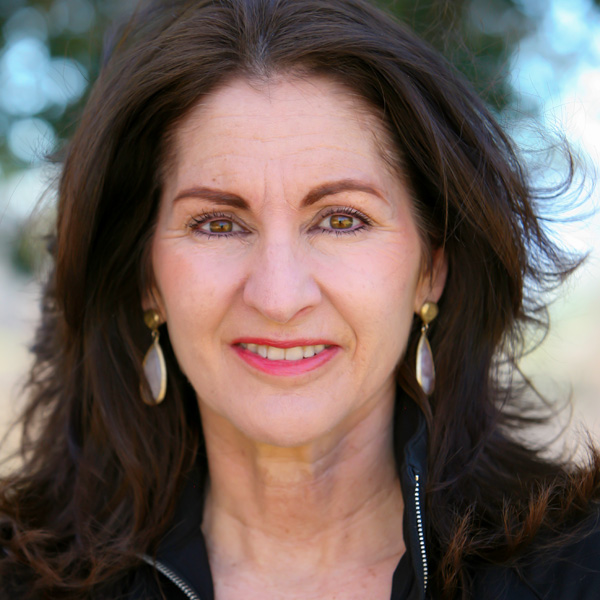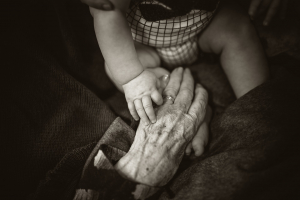 Have you found yourself in the “sandwich” generation, caught between caring for your aging parents and your own immediate family? If so, you are not alone. According to Pew Research Center, more than forty million Americans care for aging family members aged sixty-five and older. These caregivers are unpaid and often juggle their careers and responsibilities while caring for a loved one. In this article, we’ll look at the importance of caregiver support and how to implement it.
Have you found yourself in the “sandwich” generation, caught between caring for your aging parents and your own immediate family? If so, you are not alone. According to Pew Research Center, more than forty million Americans care for aging family members aged sixty-five and older. These caregivers are unpaid and often juggle their careers and responsibilities while caring for a loved one. In this article, we’ll look at the importance of caregiver support and how to implement it.
Caring for the aging generation plays a critical role in life; however, it is vital for your own physical and mental health to seek caregiver support right away. With more and more grown children assuming the role of caregiver, there is an abundance of resources available, including Agoura Christian Counseling, which can offer guidance and emotional support as you navigate this important responsibility.
The Toll of Caregiving on Mental and Emotional Wellbeing
Whether it is your aging parent, a spouse, or a close friend or neighbor, caregiving can take a toll on your wellbeing without sufficient caregiver support. Do the following feelings sound familiar?
- The confusion as if you are being pulled in six different directions
- The overwhelming sensation of increasing responsibility
- The guilt of not being able to do enough or be enough to all people
- The grief of watching someone you love slowly lose the ability to care for themselves
Caregiving is a challenging yet rewarding job. Aging parents may know they need help but are reluctant (some resentful) about having to rely on their adult children. However, this may not be your situation. Perhaps you feel as if you are excelling with your parents’ care but are struggling with raising your children, spending time with your spouse, and staying on top of your career.
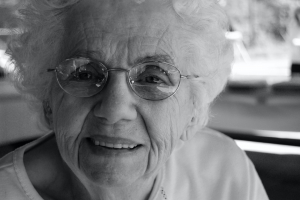 The three most common mental health issues facing caregivers are anxiety, depression, and grief. The Anxiety and Depression Association of America (ADAA) states that as many as 40% to 70% of caregivers experience the symptoms of depression, with almost half showing the signs of major depression. How can you avoid these statistics?
The three most common mental health issues facing caregivers are anxiety, depression, and grief. The Anxiety and Depression Association of America (ADAA) states that as many as 40% to 70% of caregivers experience the symptoms of depression, with almost half showing the signs of major depression. How can you avoid these statistics?
First, you need to be aware of the signs of anxiety and depression. It is not always a person who stays in bed all day (although sleeping too much is a sign). Look at the following symptoms of anxiety and depression. If you recognize any of these, consider speaking to a trusted mental health professional.
Signs of Possible Anxiety and Depression:
- A loss of interest in things you once enjoyed.
- A change in sleep patterns such as sleeping too much or too little (developing insomnia).
- A change in appetite that can lead to binge eating, overeating, or starvation.
- Feelings of fatigue or general tiredness.
- Feelings of irritability.
- Constant worry over your loved one’s health.
- Developing or increasing anxiety or panic attacks.
- An inability to concentrate on tasks or focus on details.
- Elevated rested heart rate and blood pressure.
- Thoughts of escaping from this life (running away) or thoughts of suicide.
Grief is the third most common emotion caregivers face. It is difficult to watch someone you love unable to do the things they once did. If your loved one’s health is quickly disintegrating, then your mind may have already begun the grieving process. For caregivers who have given months or years of their lives to caring for a loved one, the grief does not suddenly end upon death.
The caregivers who are at a higher risk of developing complicated grief after their loved one passes:
- Are caring for more than one loved one or watching someone who needs around the clock care
- Have younger children at home
- Do not have anyone to talk to about the role of caregiver
- Feel burned out and exhausted
- Have other responsibilities such as a job
Complicated grief prolongs the grieving process, making it difficult for the caregiver to move through the stages healthily. You may find it challenging to think about other things besides the loss of your loved one with complicated grief, your mind might ruminate on the loss, or you may find it hard to recall the good memories because the pain has a firm grip on your mind.
Feelings of prolonged sadness and longing may override all other emotions. Or, on the opposite side of the coin, a sensation of numbness may stamp out everything else. Complicated grief is a mental health condition that does require the help of a professional.
The Physical Demands of Caregiving 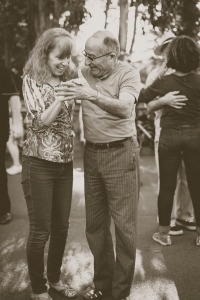
While caring for a loved one, it is easy to neglect your own physical and emotional health. You may find it is more convenient to eat fast food while running errands, remove exercise from your to-do list, and fill in free time gaps with caring for your loved one and immediate family. However, as noble as this all sounds, neglecting yourself will only have negative consequences.
Caregiving Stress Syndrome is a condition brought on by exhaustion and burnout. Chronic stress on the body can lead to high blood pressure, elevated cortisol levels, rapid heart rate, diabetes, overweight or obesity, and other physical conditions. Many of these conditions require prescription medication to control.
Caregiver Stress Syndrome also decreases the ability for antibodies to fight illnesses by as much as 15% compared to non-caregivers. This can lead to a lower immune system making it easier for you to catch viruses.
Even with all the statistics, caregiving is a role we must accept as one day we may be unable to resume our responsibilities. The Psalmist wrote, “Do not cast me off in the time of old age; do not forsake me when my strength fails.” (Psalms 71:9). So, how can we avoid caregiver burnout while giving our all to loved ones and family?
Where to Find Caregiver Support
Just like a flight attendant instructs you to place the oxygen mask over your face before you put one over your child’s face, prioritizing your health is a must. Consider asking a family member or friend for help for a couple of hours a week.
If you or your aging parent are active in church, you might be surprised to learn that people from the congregation are more than happy to visit and help. Do not allow your ego or sense of control to make you miss letting someone else bless your loved one.
Do something that your body, mind, and spirit need for those few hours. Perhaps you need to take a long walk around a lake, spend time at the gym, or read a book. Whatever it is that lightens your load and allows you to regroup, do that.
You may want to consider delegating certain errands or days to other people. Assisted adult daycares and respite care are available. Many times, you can work with a Senior Care Specialist to finance or discuss other options. What else would make life easier for you right now? Grocery pickup? Prescription medication delivery? Hiring a handyman (or woman) for repairs around the house?
You can find caregiver support groups either locally or online. The members are also caring for aging parents, sick spouses, or terminal friends. Faith-based counseling centers are another possibility for finding support. Depending on the clinic, you may discover peer support or individual counseling.
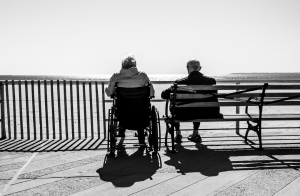 Suppose you are looking for an outlet and a way to share your emotions, whether positive or negative. In that case, a Christian counselor at Agoura Christian Counseling can work with you through this season while helping to strengthen your relationship with Jesus Christ.
Suppose you are looking for an outlet and a way to share your emotions, whether positive or negative. In that case, a Christian counselor at Agoura Christian Counseling can work with you through this season while helping to strengthen your relationship with Jesus Christ.
You can learn techniques for managing stress, finding others going through the same season, and identifying and processing your emotions. Allowing yourself to have some breathing room will make the time you spend with your loved one less stressful.
Not everyone reaches the Golden Years. It is a blessing and a privilege to care for someone who perhaps spent a lifetime with your best interests in mind. It is also a complex and challenging role to fulfill. We understand and want to help you with caregiver support through this season. You can honor your father and your mother while keeping yourself healthy inside and out.
“Playing with Grandma”, Courtesy of Rod Long, Unsplash.com, CC0 License; “Grandma”, Courtesy of Todd Cravens, Unsplash.com, CC0 License; “Dancing Couple”, Courtesy of John Moeses Bauan, Unsplash.com, CC0 License; “Sitting in the Sun”, Courtesy of Bruno Aguirre, Unsplash.com, CC0 License
-
Shirley Kauffman: Author
As a Licensed Marriage and Family Therapist, I provide faith-based counseling for individuals, couples, and families facing a wide range of issues including anxiety, depression, marriage problems, divorce, and other family issues. With God’s help, I’...
-
Kate Motaung: Curator
Kate Motaung is the Senior Writer, Editor, and Content Manager for a multi-state company. She is the author of several books including Letters to Grief, 101 Prayers for Comfort in Difficult Times, and A Place to Land: A Story of Longing and Belonging...
DISCLAIMER: THIS ARTICLE DOES NOT PROVIDE MEDICAL ADVICE
Articles are intended for informational purposes only and do not constitute medical advice; the content is not intended to be a substitute for professional medical advice, diagnosis, or treatment. All opinions expressed by authors and quoted sources are their own and do not necessarily reflect the opinions of the editors, publishers or editorial boards of Stone Oak Christian Counseling. This website does not recommend or endorse any specific tests, physicians, products, procedures, opinions, or other information that may be mentioned on the Site. Reliance on any information provided by this website is solely at your own risk.


